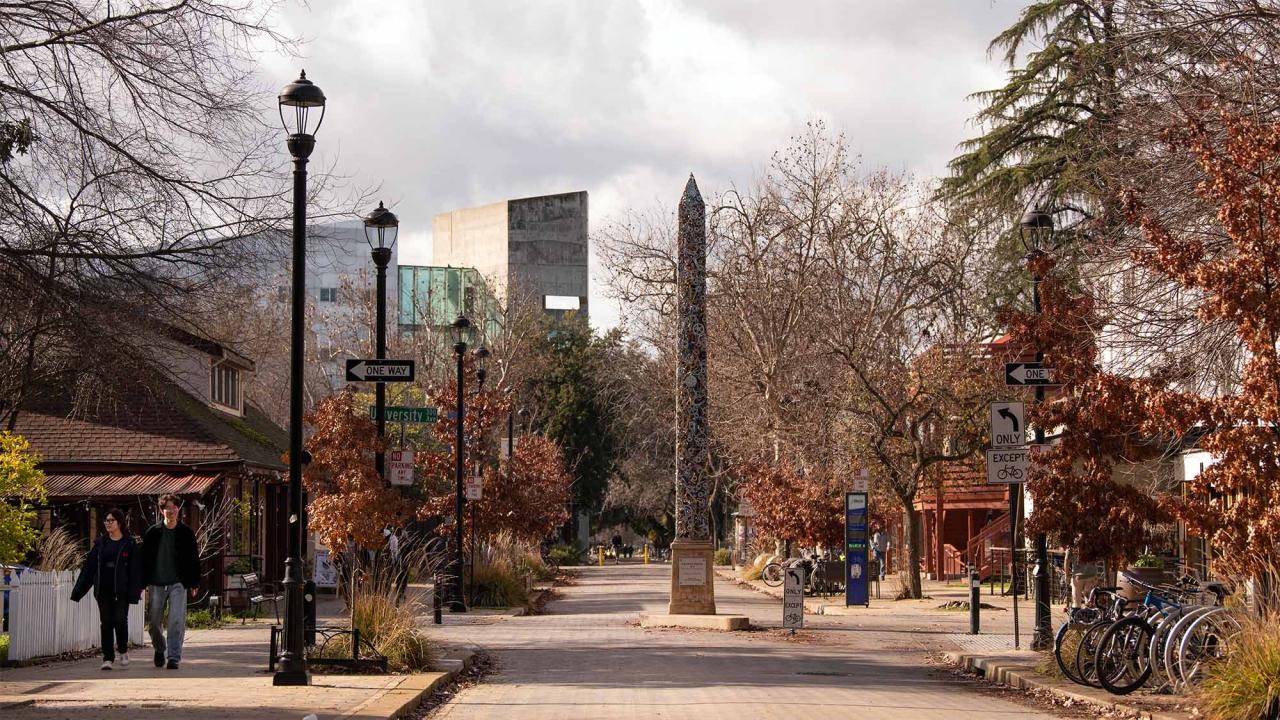
CHANCELL-ING: Collaboration for a More Sustainable World
Many of us often talk about the “Davis Difference.” I want to delve into that for my first column of the new year.
In a world grappling with increasing pressure to address environmental challenges, from pollution to climate change, the city of Davis and UC Davis partnership offers hope for a more sustainable future. One bike path, one bus ride and one recycling trip at a time, we’re building that future together.
Sustainability on many fronts
At UC Davis, our commitment to sustainability is a deeply held value reflected in our ambitious greenhouse gas emissions reduction goals. Whether it’s our ongoing Big Shift, which is transitioning our campus operations towards carbon neutrality or projects like our Renewable Energy Anaerobic Digester, or READ — which will reduce methane emissions from landfills by diverting thousands of tons of food waste every year — we are emphasizing sustainability at every level of our operation.
These efforts are part of the reason UC Davis was named the greenest university in the nation for the ninth year in a row in the UI GreenMetric rankings. This recognition is a testament to our bedrock commitment to sustainability at UC Davis and in our community.
This commitment extends beyond the campus to working with our partners in the city and Yolo County as we journey toward increased sustainability. We're creating a living laboratory for sustainability right here in Davis and setting an example for communities everywhere.
This unique collaboration isn’t just about common geography. It's about an uncommon vision for a sustainable future founded on mutual action and shared values. We’re setting the bar for what local government and a university can achieve when they work together.
The city of Davis is meeting our commitment every step of the way. With its Climate Action and Adaptation Plan, or CAAP, which aims for carbon neutrality by 2040, Davis is setting an even more ambitious target than California. Investments in renewable energy, water conservation, and waste reduction are transforming our town.
Collaborative transportation
The real magic of Davis lies in the way the city and the university work together. Initiatives like Moving Forward Together are testaments to the power of joint planning. The plan addresses sustainable transportation while reducing our carbon footprint and improving wellness. It includes bike infrastructure, pedestrian crossings, and transit routes that will streamline movement while prioritizing the safety of everyone using our roads and sidewalks.
Our collaborative efforts on a Short-Range Transit Plan will help us prioritize investments in bus services and routes over the next five to ten years. It will better connect our communities and enhance our already robust public transportation network. I hope you’ll all consider assisting the team working on the plan as they move into Phase Two public input this February.
Our Unitrans network — already moving toward an all-electric fleet to reduce emissions — will leverage a $1.6 million grant from the Department of Transportation to build infrastructure and purchase charging equipment to support the fleet.
And, of course, we remain the "Bicycle Capital of America," with a network of bike paths that's the envy of cities worldwide. Programs like the Spin e-bike share are making sustainable transportation even more accessible to everyone, an essential part of ensuring that we infuse equity into our sustainability goals.
This partnership extends across Yolo County. UC Davis is part of the Yolo County Regional Resilience Collaborative, a California state-funded collaborative effort to address climate risks and ensure that vulnerable communities are included in decision-making efforts.
We are also partners in Yolo County’s Zero Emission Vehicle Plan, a Caltrans Sustainable Transportation Planning Grant-funded plan to evaluate and develop support for more Zero-Emission Vehicles, all while ensuring that low-income households can acquire this technology.
Our commitment to collaboration, transparency and shared decision-making has created a framework to overcome whatever challenges we face. UC Davis and our partners are proving that we can listen to the voices in our community while we imagine and realize a healthier planet together.
The “Davis Difference” is not just a local phenomenon. It’s a model and inspiration for what we can do when we collaborate to create a more sustainable future for the planet and the people who share it.
Here’s to a happy new year and our continued work together!